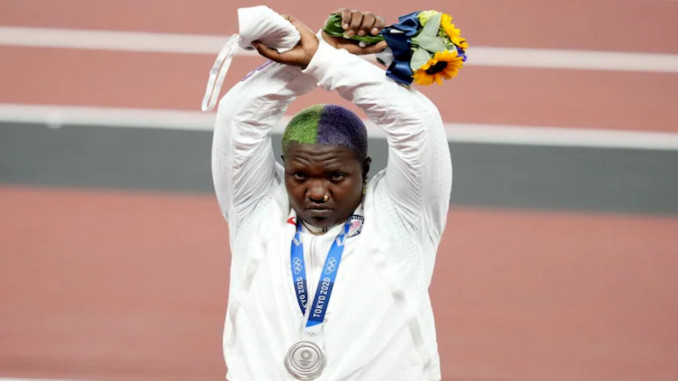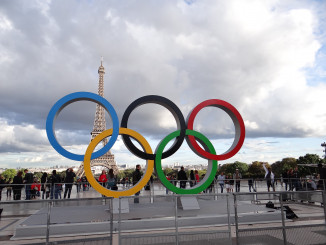
The Olympic Games concluded on August 8th and many of us enjoyed watching the world-class performances on display in all the different events. In many ways, the Olympics serve as a snapshot of the incredible talents that human beings around the world possess.
While the Games were enjoyable to watch, they also featured political moments that should be highlighted in which athletes took a stand against various forms of oppression we face under capitalism. Here are some of these moments:
- Simone Biles Stands Up to USA Gymnastics
Decorated American gymnast Simone Biles decided to withdraw from several events at the Tokyo Olympics due to concerns she had about her mental health. She was immediately criticized by figures throughout the US gymnastics community and media for supposedly not honoring her commitment to her country and the team.
This was a significant action for Biles to take for many reasons. In the past several years, it came to light that the US Women’s Gymnastics federation had allowed sexual abuse of gymnasts to occur throughout the country for decades, and that former national team doctor Larry Nassar had molested hundreds of gymnasts, including Biles. This was considered the largest sexual abuse scandal in sports history.
What did Biles owe to an institution that systematically allowed and covered-up the sexual abuse of thousands of young athletes? Biles took a courageous stand against all these forces and showed that despite what they think, athletes like her are not just the property of countries to show off during the Olympics – they are human beings.
- Raven Saunders Uses Olympic Podium to Highlight Intersections of the Oppressed
The Olympics has a long history of trying to silence political statements during the Games. Rule 50 of the Olympic Charter reads “no kind of demonstration or political, religious or racial propaganda is permitted in any Olympic sites, venues, or other areas.”
Despite this, American silver medalist in the female shotput Raven Saunders refused to be censored and used her time on the medal stand to make a statement. After receiving her medal, she crossed her arms in an “X” gesture, later explaining the gesture represented “the intersection of where all people who are oppressed meet.” In a time where the pandemic, environmental destruction, and exploitation destroys the lives of people around the world, we can learn from Saunders’ message to unite as workers against this system to create a better world.
- Italian and Qatari High-Jumpers Share Gold Medal
At the end of the male high jump competition, Italy’s Gianmarco Tamberi and Qatar’s Mutaz-Essa Barshim were tied for the highest jumps in the competition. When the judge told them that they would need to go to a jump-off to determine a winner, Barshim and Tamberi told the judge they preferred to share the gold medal.
It later came out that the two had known and competed against each other since 2010. Both had suffered injuries between the last Olympics and the Tokyo, events which caused them both to doubt if they would even compete in the Tokyo Olympics. Reflecting on their personal journeys that led them to that moment, the two of them hugged and cried the moment they shared the gold in a true act of friendship and sportsmanship.
This unlikely ending to the high jump event showed the exact opposite of the nationalism that the bosses use to divide people against one another. Instead, it showcased the very type of internationalism and unity among human beings that we will need to channel in the future to put an end to the capitalist system that oppresses us all.




